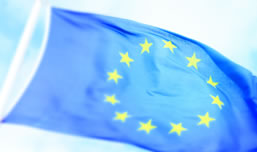Latest developments on UK ratification of the UPC
January 2018
Amidst the ongoing Brexit process, further recent statements from the UK Government suggest that it views the UPC as a separate issue to disentanglement from the EU. These were made on 29 November in Committee Room 11 of the House of Commons by Jo Johnson MP. Johnson, who is the minister responsible for IP, was speaking during discussion of the UPC (Immunities and Privileges) Order 2017 by the Sixth Delegated Legislation Committee.
Johnson stated that:
…a single unified patent court is welcome. An important division of the court, dealing with disputes in the field of pharmaceuticals and life sciences, will be based here in the UK, cementing our global reputation as a place to resolve commercial legal disputes;
However, while the UK Government has been keen to emphasize that the UPC is not an EU organisation, the Minister acknowledges that the current constitution of the court (and the Unitary Patent, which is an EU instrument) is for EU member states only, and this will require some re-negotiation for UK participation:
After we leave the European Union in March 2019, we understand that we will have to negotiate a new relationship with the UPC. We want to do that as seamlessly as possible so that businesses can continue to take advantage of the provisions that the UPC makes possible.
Subsequently, the Privy Council has approved the necessary Scottish Immunities and Privileges Order, on 13 December 2017. Separately a UPC (Privileges and Immunities) Order will be the last piece of legislation that must be passed by the UK before it can formally ratify the UPC. The Privy Council is expected to approve this Order when it meets in February 2018. UK ratification should then follow shortly afterwards.
All eyes will then be on the complaint filed against the UPC before the German Federal Constitutional Court (FCC). A decision by the FCC on whether to formally admit the complaint is expected in the first half of 2018. If the complaint is dismissed, German ratification can take place and the UPC can proceed. If the complaint is admitted then the future of the UPC will depend on the decision of the FCC on the merits of the complaint.
If you have any questions on this article or would like to propose a subject to be addressed by Synapse please contact us.


Paul England
Paul is a senior associate and professional support lawyer in the patents group based in our London office.
"the UK Government has been keen to emphasize that the UPC is not an EU organisation, but acknowledges that it will require some re-negotiation for UK participation"

